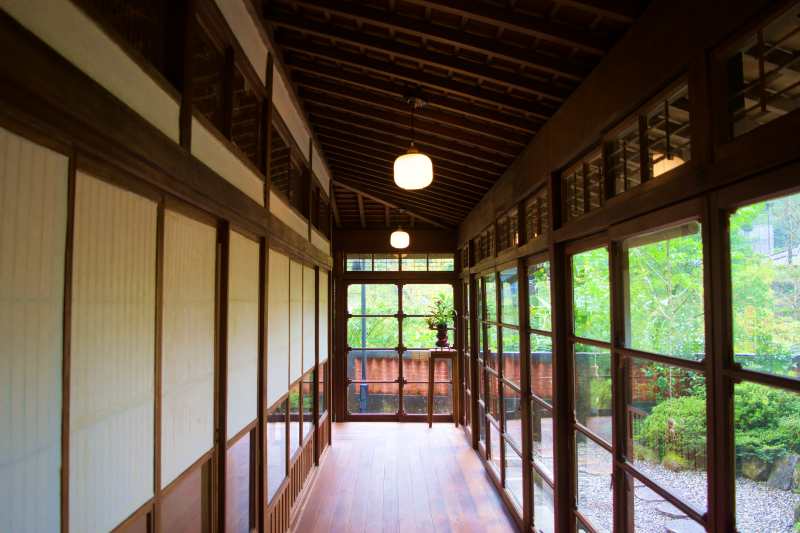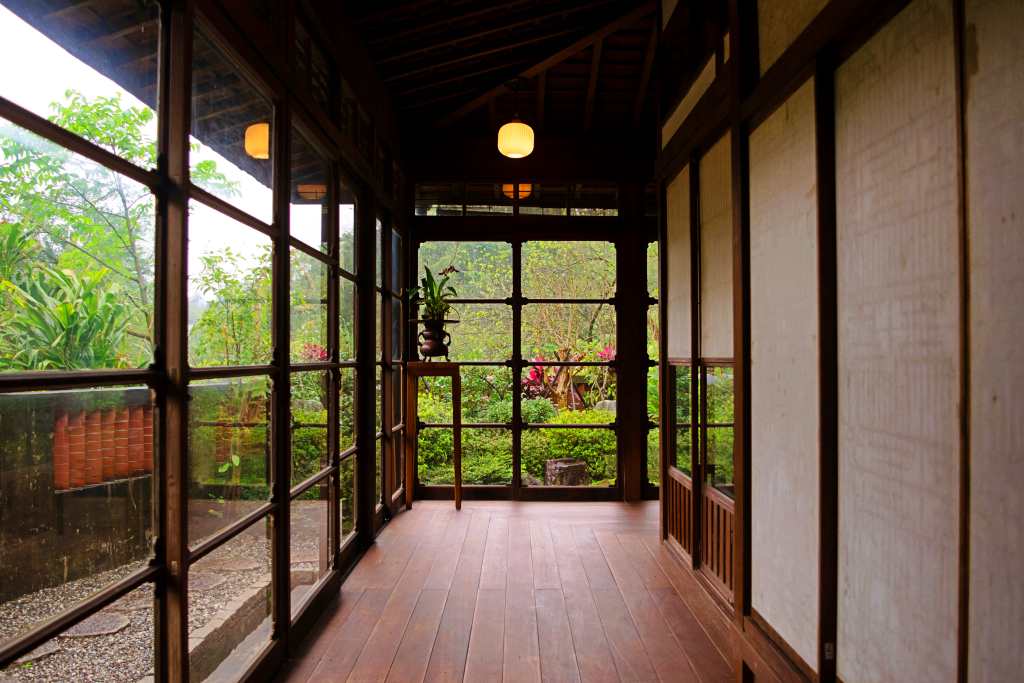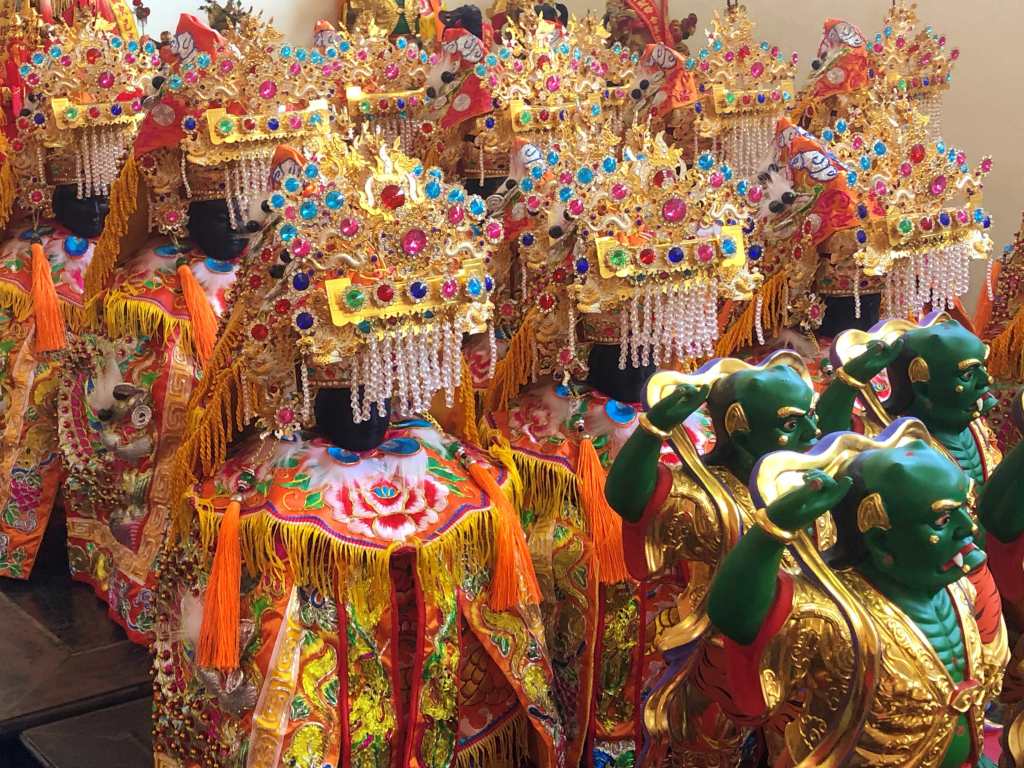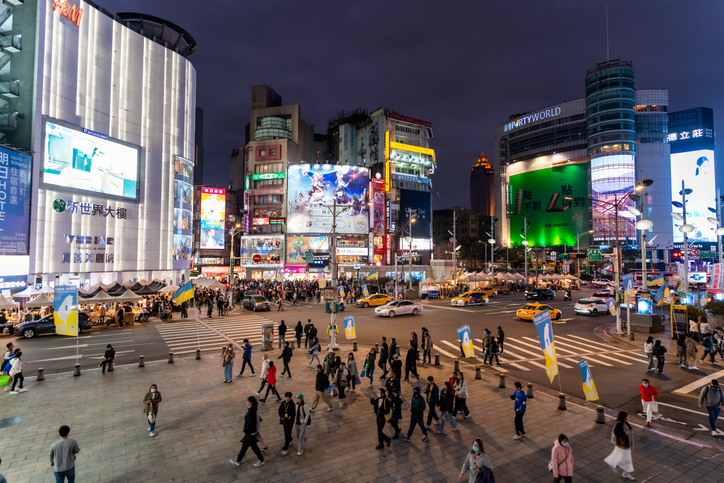Author & Photographer: Gi Hsieh
Editor: Julien Huang
For travelers seeking a deeper connection to Taiwan’s past, Ikken’s boutique luxury tasting tour offers a rare chance to indulge in tradition, culture, and refined hospitality all in one place.
Take a step back in time to Jingtong Village (菁桐).
This historic coal mining town nestled in the misty mountains of Pingxi just one hour from Taipei, was once home to ten thousand workers and played a key role in Taiwan’s industrial rise. Today, its railway station and narrow old streets offer visitors a quiet escape and is a great alternative to more popular sites in the Pingxi region like Jiufen or Shifen.
At the heart of Jingtong stands Ikken (一見菁桐), a private museum housed in a meticulously restored Japanese-era building.
Ikken is an immersive aesthetic experience that blends history, craftsmanship, and cuisine into an art space and culture house. From the natural scent of cypress wafting gently from its very structure, to the thoughtfully curated antique silver pots, every detail tells a story.
For travelers seeking a deeper connection to Taiwan’s past, Ikken’s boutique luxury tasting tour offers a rare chance to indulge in tradition, culture, and refined hospitality all in one place.

Discovering Jingtong Village
But first, let’s paint the scene.
Jingtong was a thriving coal mining town established during the Japanese colonial era. They discovered high-quality coal in the region in 1907 which led to the rapid expansion of mining operations and development led by the Taiyang Mining Company (台陽礦業事務所).
To support this booming industry, the Pingxi Railway Line was built and this expansion brought workers and businessmen from all corners of the world. Over the course of two decades, this sleepy town transformed into a thriving industrial hub and cemented Jingtong’s place in history as a vital force of development in northern Taiwan.
However, as the world transitioned to using natural gas as the main energy source, Jingtong found itself left behind. With poor economic opportunities, locals moved away and the village was abandoned.
Ikken: A Portal to the Past
The estate was built between 1939 and 1940 during the Showa era and originally owned by the Taiyang Mining Corporation. It was a private guesthouse for visiting businessmen, dignitaries, and members of the Japanese imperial delegation and provided an elegant setting for discussions on trade and industry.
Though it no longer serves that role, Ikken remains a testament to time, standing as one of Taiwan’s last surviving examples of shoin-zukuri architecture, a traditional Japanese style known for its craftsmanship and refinement.
Ikken offers visitors a rare opportunity to experience artistry and historical immersion in a carefully preserved space.
Ikken: The Vision
The name Ikken means at first sight and is meant to capture the brilliance of antique artifacts that reveal their ingenuity through design and beauty “at first sight.”
It’s is the first part in the phrase (一見鍾情) or love at first sight and is also a pun as Ikken (一見) has the same pronunciation as Yi Jian (一件) in mandarin which means one of a kind.
This layered significance reflects the museum’s philosophy: each artifact at Ikken is singular, irreplaceable, and carefully chosen to capture history’s depth and elegance.
More than just a historic building, Ikken also serves as a reminder of Jingtong’s coal mining era—a time when black gold (黑金) aka coal, was a vital resource that fueled Taiwan’s economy.
As per their introductory video, coal and diamonds are made from the same carbon skeleton and as such, Ikken aspires to take that same concept and through careful refinement and curation, once again revitalize this region as a bright and enduring representation of Taiwanese culture.
Guided Historical Site Tour Near Taipei
The guided tour at Ikken is a walk through history inspired by Tang and Song Dynasty traditions. Every room is expertly arranged and invites visitors to see history and culture as a dialogue between aesthetic craftsmanship and function.
The tour begins at the Clear and Rainy Day Light Library, a serene space lined with rare books and antiques, including an exclusive limited edition version of Murals of Tibet, personally signed by the Dalai Lama. Moving through the Crown Prince’s Pavilion, we learn about how status is embedded into interior design with cherry blossom pillars and a prime garden view marking the room as one of prestige. The space adjacent holds a 400-year-old daimyo palanquin which is beautifully crafted with lacquered details and a silk interior.
The guide effortlessly blends humor and local references with information to make the experience educational, inspirational, and (most importantly of all) digestible. Ikken is a bridge between the past and present and the experience encouraged me to slow down and appreciate a world where objects were not just used, but treasured–a stark contrast to the disposable modern life we now live in.
Teishoku: A Set Meal Steeped in Tradition
After the tour, we were led to the Jule Hall. This space was originally the tea room, but has now transformed into a dining space decorated elegantly with long wooden tables and a massive traditional drum as the centerpiece.
Lunch was teishoku, or a set meal, served in a beautifully arranged bento with each dish highlighting seasonal, locally sourced ingredients, once again reflecting their mindful approach to the experience.
The menu featured delicately braised pork, a whole grilled fish, savory beef soup, and a wide variety of side dishes. What caught me off guard was the taro gnocchi! It was a delicious surprise and I love that the kitchen creatively adapted this Italian signature and reimagined it with a traditional Taiwanese root vegetable.
Just as Ikken’s artifacts tell a deeper story of history and culture, this meal served as a quiet tribute to the island’s agricultural roots with a balanced and refined simplicity.
Luxury Tea Tasting Near Taipei
After lunch, we were given some time to explore the museum and then brought back to the dining hall for a luxury tea tasting.
“When I was curating the antique artifacts, I found that 70-80% of the items were related to tea. That’s when it became clear just how essential tea is to the eastern way of life, and that’s why we included it in the tour experience,” says Mr. Zhao.
It’s clear from bubble tea’s popularity that tea is still an essential part of everyday life in Taiwan. However, our modern association with tea is that it’s simply a grab-and-go beverage or something to quench your thirst on a hot summer day.
In contrast, this experience offers us an opening to slow down, engage the senses, and appreciate fleeting moments. Watching the steam rise, breathing in the aroma, and savoring each sip transforms a simple act into a ritual to be celebrated.
Ikken’s Tea Selection
Ikken’s premium tea tasting features two different types of tea served with a wide assortment of delicious fruits and handmade crackers.
The first tea is a spring flush Baozhong tea (包種茶) from Taipei’s Wenshan District. The leaves are lightly oxidized and the beverage carries a gentle floral aroma.
The second is a rare Foshou tea (佛手茶), another oolong variety that has a slightly deeper taste. The leaves are almost as big as the human palm (hence the name) and each batch is carefully rolled by hand.
Ikken’s teas are primarily selected on the basis of rarity and flavor. Each curation is well balanced between sweetness and bitterness, and while they’re not necessarily the most expensive on the market, the quality is top-tier.
The teas were served with classic Taiwanese pairings including a wide variety of beautifully arranged seasonal fruits, artisanal preserves, nutty crackers, and tea candies.
It was delightful to explore how the teas changed with each bite and sip, and the experience left a lasting impression on just how important tea is in Taiwanese culture.
An Authentic Step Back In Time
Ikken offers a rare and authentic glimpse into Taiwan’s history and culture. More than just a beautifully preserved historic estate, it is a place where art, tradition, and hospitality come together to create something truly special. For travelers looking beyond the usual attractions, Ikken provides a private, curated experience that lingers long after you leave, such as sky lantern release, or traditional music performance.
What stood out to me was just how passionate the staff was. The way they cared for the space and their deep understanding of Japanese and Chinese cultural history sparked a curiosity and inspired me to learn more.
Additionally, their warmth, attentiveness, and genuine enthusiasm created an atmosphere of true hospitality that made me feel like this was more than a museum, and that I was an honored guest in their home.
To maintain the best experience, visits to Ikken are by reservation only. Same-day reservations are not allowed so make sure to plan accordingly by booking in advance! MyTaiwanTour offers customized itineraries with English tour guide so reach out to them , or book directly through Ikken’s official website if you’re ready to explore on your own.












